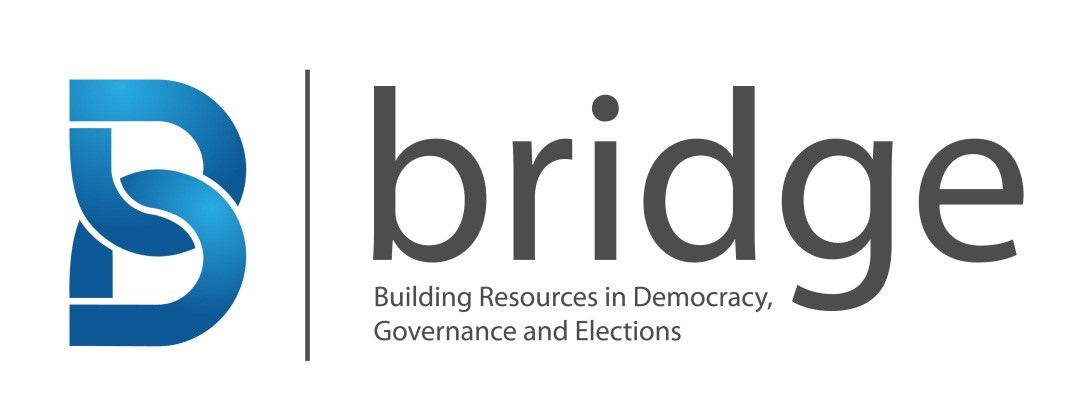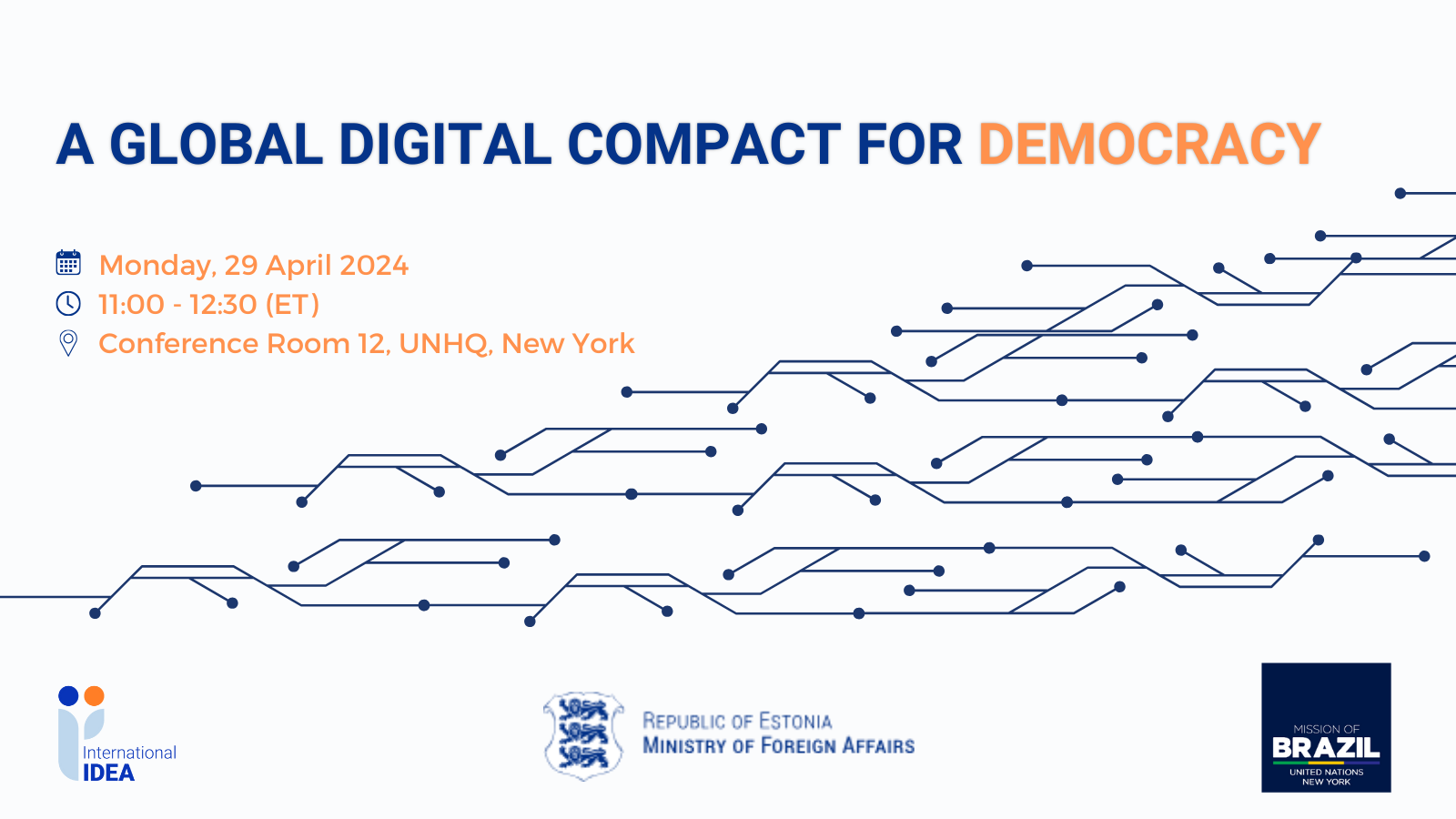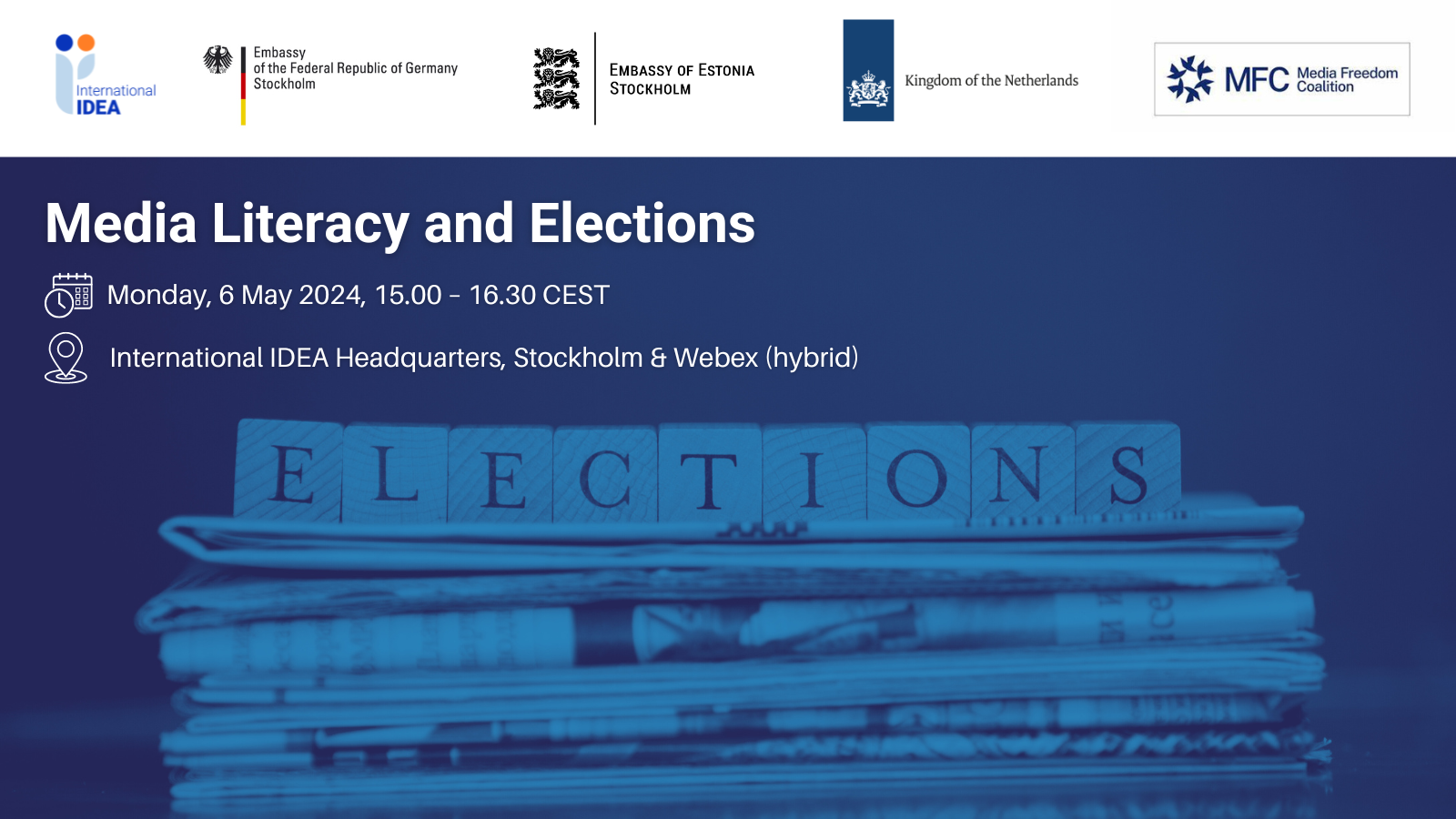BRIDGE Voter and Civic Education module launched
The Building Resources in Democracy Governance and Election (BRIDGE) project recently launched its version 3 Voter and Civic Education module. This highly interactive professional development module provides election management bodies (EMBs), educational institutions and civil society organizations (CSOs) with a framework and methodology to develop effective, focused and cost-effective voter and civic education programmes.
Since 2001, Voter Information and Civic Education have been two of the most popular BRIDGE modules in use, with a total of 190 workshops around the world dedicated to the topic. The version 3 module, Voter and Civic Education, combines the content of these two version 2 modules to provide a state-of-the-art curriculum with a user-friendly structure and an array of updated and new activities and resources.
“What is remarkable about this module is that it takes stock of an array of illustrative and recent voter and civic education materials from EMBs, CSOs and electoral assistance providers from around the globe as part of the activities designed to enhance participants learning and comparative knowledge” says Erik Asplund, Programme Officer at International IDEA.
The module examines the definitions, rationale and principles that underpin voter and civic education as well as the considerations that need to be made when developing and implementing voter and civic education programmes. This module can be customised to focus on effective planning of either civic education programmes and/or voter education programmes.
It begins with a theoretical introduction to the key concepts, defining the similarities and differences between voter information, electoral education and civic education. It also explores the origins of an EMB’s mandate and how expansively or narrowly that mandate can be expressed.
“I recently facilitated a voter and civic education workshop in Cambodia and one of the key activities focused on the EMB’s voter and civic education mandate” says Ross Attrill (BRIDGE facilitator and former BRIDGE coordinator with the Australian Electoral Commission). “Including this as part of the new module will hopefully raise participants’ ability to identify the legal source of a voter and civic education mandate, articulate the meaning of that mandate, as well as define the parameters of an education programme.”
The second part of the module, which is practical, teaches participants to plan effective civic and voter education programmes. Key steps are to: establish focus, understand learners, assess available resources, select objectives, design process, implement programme, evaluate programme and document and archive programme.
It also offers approaches to school- and community-based civic and voter education programmes. “This section of the module was less developed in version 2, so International IDEA spent some time updating and creating new activities that now include country-based examples on civic and school voter initiatives from North-America and the Asia-Pacific”, says Asplund.
The module ends with a so-called ‘Make it Happen’ activity to help drive reform, whereby participant organizations begin to develop a long-term strategic plan for voter and civic education. The module’s Key Understandings—a list of what BRIDGE facilitators would want participants to know before completing the module—include the following:
- Voter and Civic Education have a number of connected elements including: civic education, electoral education, voter education, and voter information.
- Voter and Civic Education programmes should be based on accepted and agreed standards and principles.
- Providers of Voter and Civic Education Programmes must have a clearly defined mandate.
- A Voter and Civic Education programme must be carefully planned.
- Voter and Civic Education methodologies, materials and media should meet the different needs of all the numerous stakeholders in the process.
- A Voter and Civic Education programme must be implemented in a timely and efficient manner.
- A Voter and Civic Education programme must be carefully monitored and evaluated.
- All elements of a Voter and Civic Education programme must be carefully documented and stored.
- Voter and Civic Education programmes work best when they support a long term, Voter and Civic Education strategy.
BRIDGE is a modular professional development programme, promoting principles of democracy and good electoral practice. Since 2001, BRIDGE workshops have been conducted 2,167 times in more than 100 countries, with over 15,000 participants. “This module is the 4th version 3 module to be launched and we are expecting to launch the Gender Equality and Elections module in the next couple of week,” says Sara Staino (BRIDGE Content Manager, UNDP). Other version 3 modules launched in 2016 include the Voter Registration, Electoral Systems and Strategic Planning in Electoral Management”. To a large extent, the BRIDGE modules are “the gift of what we wish we had known when it comes to electoral processes… and their reach is truly global”, says Therese Pearce Laanela, BRIDGE facilitator and Senior Programme Manager at International IDEA.
The version 3 Voter and Civic Education module was developed between 2016-2017 by the BRIDGE partners, led by International IDEA. The module is available for accredited BRIDGE facilitators via the BRIDGE website. For more information please contact Erik Asplund or the BRIDGE office via their website.




